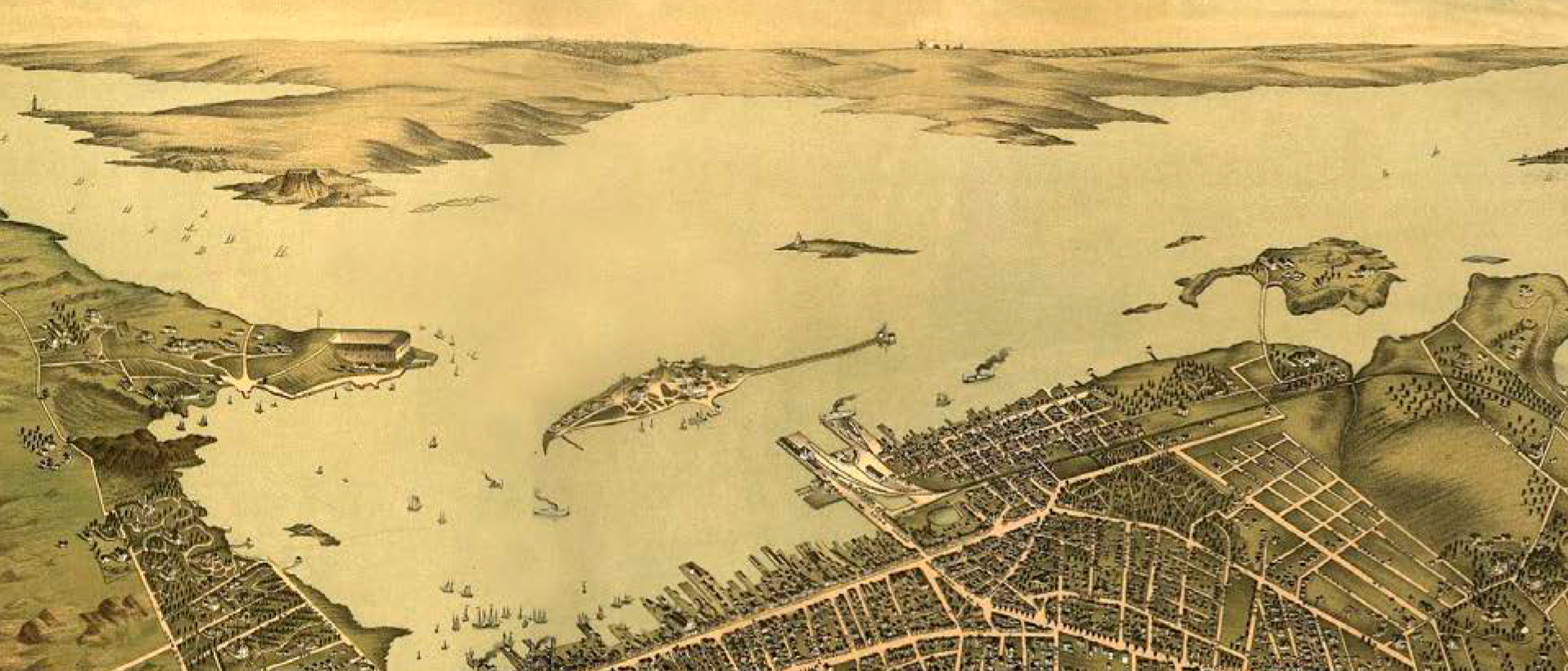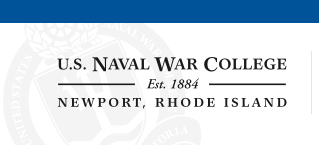
Newport Papers
Newport Papers are extended research projects that the Director, the Dean of Naval Warfare Studies, and the President of the Naval War College consider to be of particular interest to policy makers, scholars, and analysts. These book-length monographs cover a variety of subjects, but ideally relate to contemporary operational or strategic concerns in the realm of maritime security. Printed copies of Newport Papers are distributed to a list of approximately 300 senior commanders and staff members.
-

Shaping the Security Environment
Derek S. Reveron
Newport Paper No. 29, Shaping the Security Environment, edited by Derek S. Reveron, makes an important contribution to an unfolding debate on the global role of U.S. military forces in an era of transnational terrorism, failed or failing states, and globalization. Reveron, professor of national security decision making at the Naval War College, looks beyond the current conflicts in which the United States is involved to raise fundamental questions concerning the regional diplomatic roles of America’s combatant commanders (COCOMs) and, more generally, the entire array of non-warfighting functions that have become an increasingly important part of the day-to-day life of the American military as it engages a variety of partners or potential partners around the world.
-

U.S. Naval Strategy in the 1990s
John B. Hattendorf
The decade of the 1990s represents a distinctive period in American naval strategic thinking. Bounded on one side by the end of the Cold War in 1989-91 and on the other by the beginning of the era of the global war on terrorism after 11 September 2001, these were years in which the U.S. Navy of the 1990s found itself faced with a dramatically altered strategic situation. For the first time in at least four decades, the U.S. Navy had neither a peer nor a superior naval adversary; further, no credible naval adversary could be discerned in the foreseeable future.
-

Reposturing the Force
Carnes Lord
Reposturing the Force: U.S. Overseas Presence in the Twenty-first Century, is the twenty-sixth in the Newport Papers monograph series, published since 1991 by the Naval War College Press. Its primary aim is to provide a snapshot of a process--the ongoing reconfiguration of America's foreign military "footprint" abroad--that is likely to prove of the most fundamental importance for the long-term security of the United States, yet has so far received little if any systematic attention from national security specialists and still less from the wider public.
-

Naval Power in the Twenty-first Century
Peter Dombrowski
This anthology of articles from the quarterly, the "Naval College Review," is divided into three sections. The first section introduces the changing security environment facing the United States and, by extension, the U.S. Navy. The articles examine both the external position of the nation and the emerging internal political and institutional contexts that constrain military and naval policies and decision making. The second section looks specifically at the roles and missions of the Navy at the beginning of the 21st century. Its articles cover both long-standing issues, such as forward presence, and the new missions the Navy has assumed in recent years -- from projecting power far inland to providing theater and national missile defense, especially against opponents armed with nuclear, biological, or chemical weapons. The last section concentrates on military and naval transformation. The articles in this section provide some perspective on, perhaps even ballast for, the claims of proponents of the revolution in military affairs. Finally, the editor supplies a conclusion reviewing the main themes of the articles and the avenues to which they point.
-

China's Nuclear Force Modernization
Lyle Goldstein
Relations between Washington and Beijing improved swiftly in the wake of the 9/11 terrorist attacks, especially in comparison to the nadir that had been reached during the April 2001 EP-3 incident. This new tide of cooperation has included counterterrorism initiatives, regional partnership in such complex situations as Afghanistan and North Korea, and even some modest agreement on the importance of maintaining the status quo with respect to Taiwan's status.
-

The Atlantic Crisis
William Hopkinson
It would in any case have been desirable to review the transatlantic relationship more than a decade after the end of the Cold War, taking account of the interlinked processes of globalization and a changing security agenda. The events of 11 September 2001 and the publication of the U.S. national security strategy in September 2002 reinforced the need. A review was made imperative by the fissures opened up within Western alliance and security structures, as well as globally, by the action of the United States and United Kingdom against Iraq, and arguably the requirement was further reinforced by the reelection of President George W. Bush in November 2004. Whatever the longer- term outcome of that reelection and of Iraq, transatlantic relations have changed, as have intra-European ones. It is time, especially for Britain, to think hard about what has happened and what the next steps should be.
-

The Regulation of International Coercion
James P. Terry
The most significant discourse about serious threats to U.S. national security in the twenty-first century will likely concern the military capabilities and intentions of non state actors, acting either for themselves, for religious elites, or as surrogates for state sponsors.
-

Global War Game 2nd Series
Robert H. Gile
This report deals with practical issues and major themes identified during the second Global War Game (GWG) Series. Its focus is on various general topics, specific force employment issues, and discrete game events. Because of the interplay of themes and issues among several theaters, some repetition is necessary to provide a more complete discussion.
-

The Evolution of the U.S. Navy's Maritime Strategy
John B. Hattendorf
The Naval War College Press is pleased to republish and make more broadly available an essay that had become a standard reference work for those few fortunate enough to be both cleared for and fascinated by the evolution of postwar American strategy. This edition reproduces the Hattendorf analysis as it was first presented and published in 1989.
-

Latin American Security Challenges
Paul D. Taylor
Two major trends in recent years have altered the context of discussions of security issues in the Western Hemisphere and made new assessments imperative. The first trend is the erosion of the euphoria of the early 1990s, when the apparent success of elections in most countries of the Americas seemed to herald a new democratic era, and market-oriented economic reforms promised greater prosperity throughout the region. Regrettably, the past decade has seen a profound disillusionment, as the promises of freedom, prosperity, and greater social and economic progress have not been realized at a rate sufficient to convince citizens that their societies are on the right path. In some Latin American countries, in fact, indexes of economic and social development are stuck where they were fifteen years ago.

